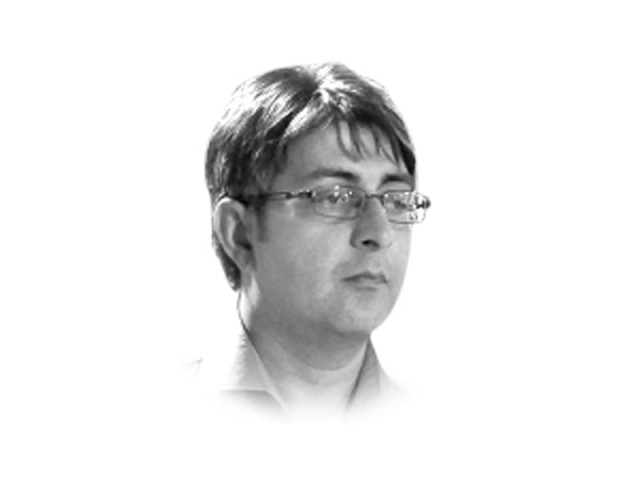A polarised world
How would you respond if told that the world is still unipolar and yet there is immense polarisation in the world?

The writer is an Islamabad-based TV journalist and tweets @FarrukhKPitafi
It is suprising how the hard-earned fruits of labour that culminated in 1989 seem so elusive today. The world is still unipolar because there is no serious challenge to the might and appeal of the United States. I think I have explained, in space, in the past how the would-be super powers lack in one or other crucial sector and none of them is as well rounded as the US. That said, there is polarisation. Not like the way there exists if you have a competition between mom and pop over the leadership of the household. Not really. Pop is firmly in control. No, it is more like pop, mom and the kids all are suffering from split personalities, even schizophrenia.
The polarisation today, is internal. It keeps bleeding; ripping societies apart from inside. The first major trouble in this context is the immense political polarisation. Think about the US presidential race. The kind of anger and stress you see in the system tells you how everyone of us is sick. This election is so polarising that by the time it is over, the US will clearly be divided into two irreconcilable halves.
But leave it there. I am writing these lines from Istanbul where I arrived to cover the 30th OIC Summit. There was a clear sense of estrangement in the air. Turkey, the host, did all it could to bring them all together. A pleasant surprise for me was the presence of both President Hassan Rouhani of Iran and King Salman of Saudi Arabia. But there came that awkward moment when their paths crossed and both pretended that the other one did not exist. Another visible example was the Foreign Minister of Egypt, Sameh Shoukry, who left without exchanging pleasantries with the Turkish president. That is the case with the leadership of the Muslim countries.
But why stop there either. This OIC summit was being held against the backdrop of the rising terrorist threat to Muslim societies. The fact that it was a physical meeting of leaders and not a meeting of minds, speaks volumes about the state of Muslim elite. But that’s not the biggest problem. Terrorism and rising violence also are symptomatic of the huge political divide at the societal level in the Muslim societies that sadly has morphed into a religious divide. I am not rationalising it. It is just that the polarisation within the Muslim societies is getting unbearable.
And then there is the matter of the diminishing quality of the political debate all over the world. Start from India, where the matter of cow slaughter is now as big as any other facing the country and end up listening to Donald Trump’s vitriol. From post-Qadri hanging reaction in Pakistan to the religious tiff in the Muslim world. The world is coming apart from its seams.
Overreaction continues over the Panama Papers controversy around the world. I call it overreaction because, honestly, did you not know that the world’s rich, powerful and famous have stashed huge caches of money in offshore accounts? It is as if the world’s tax havens have never existed before this leak. But they did. And the demand of resignations from UK to our own country is not the reaction that was needed. Mossack Fonseca is just the tip of the iceberg. How would you know who else has invested in other such companies given the nature of the elite, world over? The right reaction would have been to legislate and make sure that the loopholes that exist were closed, not just at the national level but also globally. As things stand today, reason is being sacrificed on the altar of political expediency.
If truth be told, the world is more unipolar today than it ever was. It is as if all walls have disappeared and you sit in one giant tent. Even then you bring along your centuries-old prejudice that is making everyone ill.
Published in The Express Tribune, April 16th, 2016.
Like Opinion & Editorial on Facebook, follow @ETOpEd on Twitter to receive all updates on all our daily pieces.















COMMENTS
Comments are moderated and generally will be posted if they are on-topic and not abusive.
For more information, please see our Comments FAQ